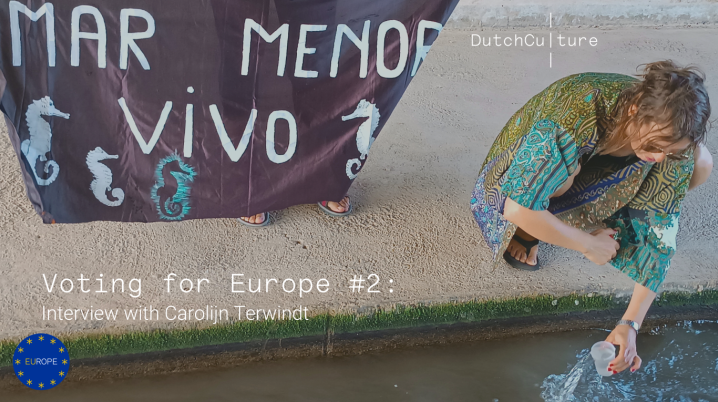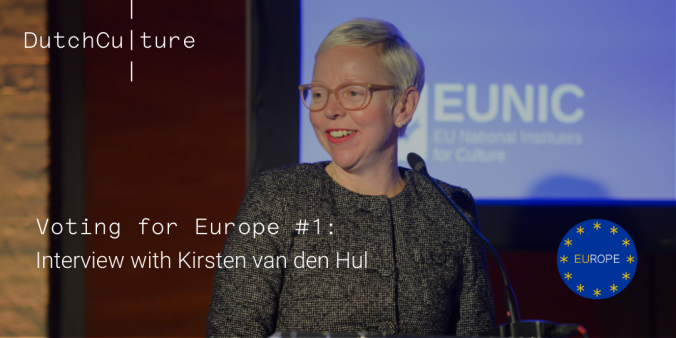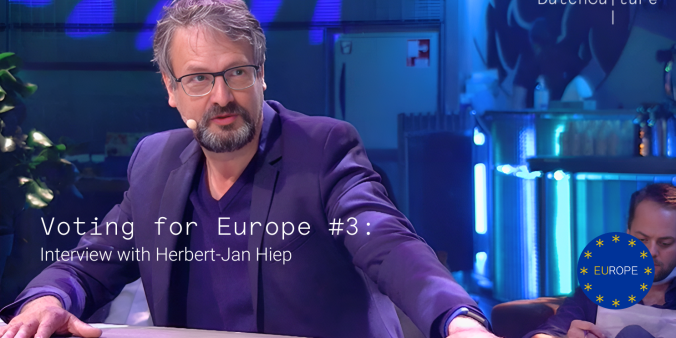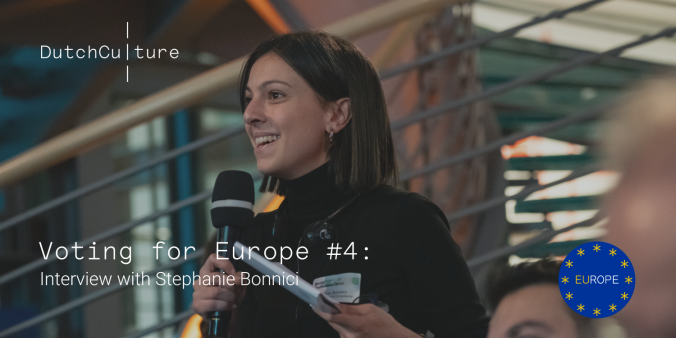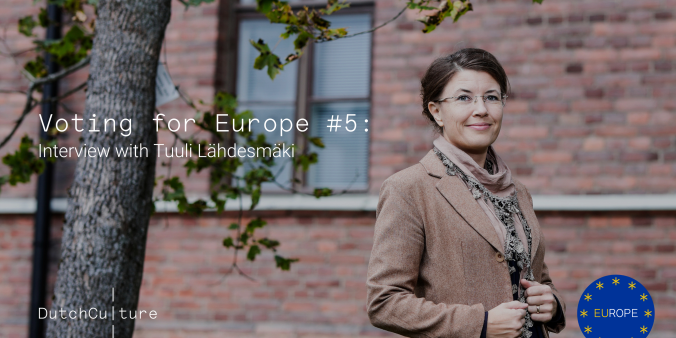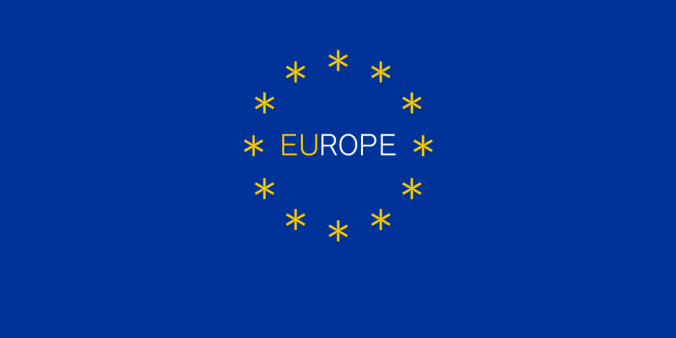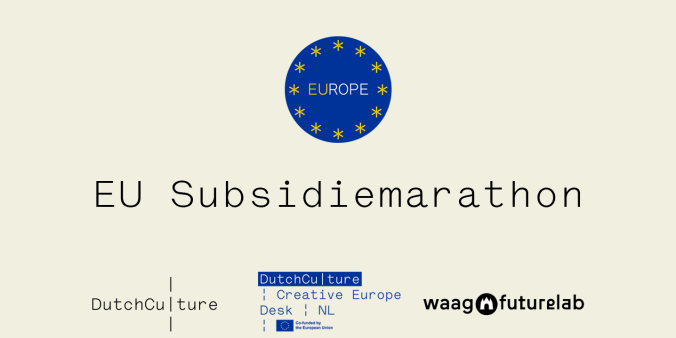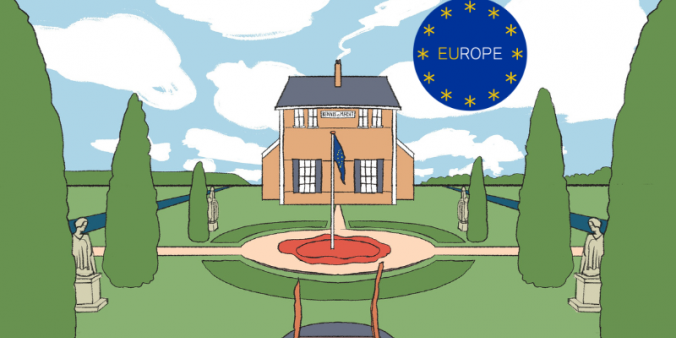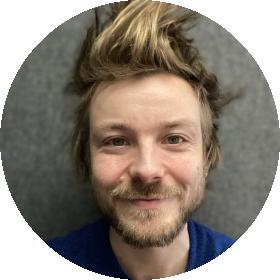
During the upcoming European Parliament Elections from 6 to 9 June this year, citizens from 27 EU countries will have the opportunity to cast their votes. It is a crucial moment for the future of Europe and our planet, and will also shape European cultural policies in the years to come. Fundamental values such as democracy, human rights and freedom of speech are at stake.
This has prompted us to reflect on the role of culture in fostering a united Europe. In this interview series, we are eager to learn from artists and a wide range of cultural professionals about what Europe and the EU mean to them personally and for their practice. Additionally, we explore how cultural exchange can contribute to a stronger shared European social and cultural space.
Carolijn Terwindt, Curator Confluence of European Water Bodies 2023 at the Embassy of the North Sea
Dr Carolijn Terwindt is a lawyer, cultural anthropologist, author, and artist who joined the Embassy of the North Sea in 2021 to create a European network of researchers, artists and dreamers who all seek to listen to the voice of nature’s creatures in the search for an appropriate form of representation of their interests.
As an interdisciplinary collective of designers, lawyers, policymakers, ecologists and artists, the Embassy of the North Sea aims to explore and question the relationships between humans and the sea and imagines ecological politics through research, art and action.
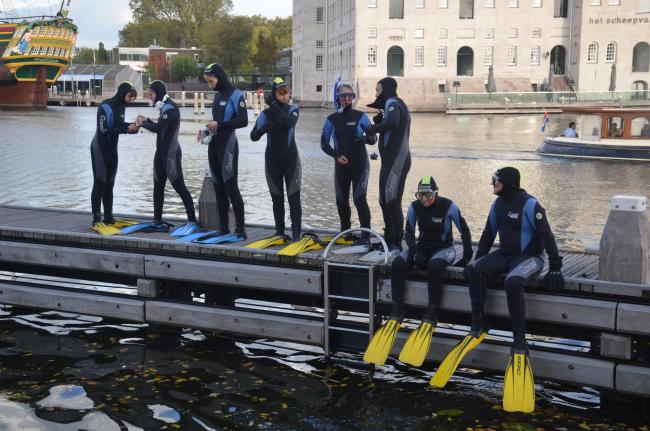
Carolijn, you work with the Embassy of the North Sea as the curator of the Confluence of European Water Bodies. What brought you to this role?
"I started at the Embassy of the North Sea at the end of 2021, aiming to set up a European network. At the time, the Embassy mainly worked in Dutch, with Dutch artists, focusing on the Dutch North Sea. During that period, there was a growing interest in our mission and our networks became broader. This development sparked our interest in collaborating with European partners pursuing similar goals.
A second spark that brought us ‘to Europe’ came from Laura Burgers and Jessica den Outer’s research about The Rights of Nature - a global movement. They mapped out where ecosystems are recognized by law or by judges. One of the most important observations was that these legal representations exist on every continent except Europe. That was a real wake-up call, making us wonder if and why Europe is so behind, and whether there were any such initiatives in Europe. And if so, where? And why are they not successful? We wanted to make Europe stronger in the global movement. This made us start talking to other European initiatives."
Also, we did not only want to be a Rights of Nature initiative – GARN (Global Alliance for the Rights of Nature) is a strong existing network for legal recognition of ecosystems. Our concern is that we must learn to listen to the political voice of the North Sea and other waters. Therefore, we are creating a network with cultural practices and exchange from a legal, artistic and activist perspective.
In that sense, I think it’s very stimulating to be involved in an initiative that tries to establish a completely new way of thinking, both legally and culturally. We cannot think about new legal norms if we don’t change our cultural understanding."

What has European collaboration brought you? How has your participation in the Confluence of European Water Bodies, including the journey to the Mar Menor, impacted the Embassy of the North Sea?
"One of the other great things we saw around the Mar Menor in Spain was that a mass movement had emerged there. They collected 600,000 physical signatures during the corona pandemic, which was impressive. I was able to join them, waking up at 3 in the morning and travelling by bus from Murcia to Madrid to attend the Senate granting legal personality to the Mar Menor, with a group of activists. I was by far the youngest of the group, which consisted of many 60 and 70-year-olds who were emotionally fully committed. They felt a sense of responsibility and, to some extent, shame, pondering: 'It was only during our time that this water became so polluted and degraded.' Consequently, they took action.
Our desire to establish a presence in the European sphere has grown by collaborating with European partners. This is evident in our plans to host the next edition of the Confluence of European Water Bodies in Venice in October 2024 and to showcase installations at international water conferences. The Confluence is now a growing network of twenty European waters.
One of the first and most concrete results of the European collaboration is the creation of a “Diplomatic Suitcase”, which is the symbolic, practical, and tangible representation of the Confluence of European Water Bodies. It is literally a suitcase that unpacks into an exhibition showing the identities of the participating water bodies. This multimedia and portable installation tells stories of the many problems European waters face, from contamination by agriculture, and dam construction to industrialization. It also demonstrates how water diplomacy can give rise to an emerging alliance of water guardians advocating the urgency of ecological and social transformation. We look forward to seeing this travelling exhibition be welcomed in various contexts, like museums, galleries and embassies across Europe.
"But there is a warning too: the Mar Menor was extremely polluted and it showed. You could see heaps of fish jump out of the water to die on the shore. No other place should allow things to get to this point.
Within the network we also witness an inspiring collaboration, taking place in Norway with a religious community. The Church is one of the old, increasingly empty, but also one of the last remaining bastions of spirituality. Activists from the Akerselva river in Norway work with the the church there to transform the image of human beings as guardians of the earth, a frequently misunderstood form of stewardship, towards a new ecological thinking. The step may not even be that big."
What are concrete challenges for you when it comes to your European collaboration?
“Within the European network, we want to be a mutual support system, engage in a common interdisciplinary research project and set up a shared campaign. The challenges are firstly, the language. In Spain, we did the whole confluence in both Spanish and English. Many of the (elderly) Spaniards did not speak English. This is a barrier, leading to a financial challenge if we want to work inclusively in all those different contexts.
Secondly, some groups that defend the rights of rivers in Croatia, Montenegro or Poland, face repression. Unfortunately, if you go against economic interests, you end up isolated and have to deal with risks. Thirdly, while we can apply for subsidies here in the Netherlands, that is not an option for everyone. To come together, there must be money so that people can travel.
A final challenge is mobility in Europe; for many participants, a train journey to Spain was almost impossible, both practically and financially. Plane travel is of course problematic if you’re concerned with ecological politics. And trains take a lot of time, too. If you work with volunteers who have a job at home, that is difficult."
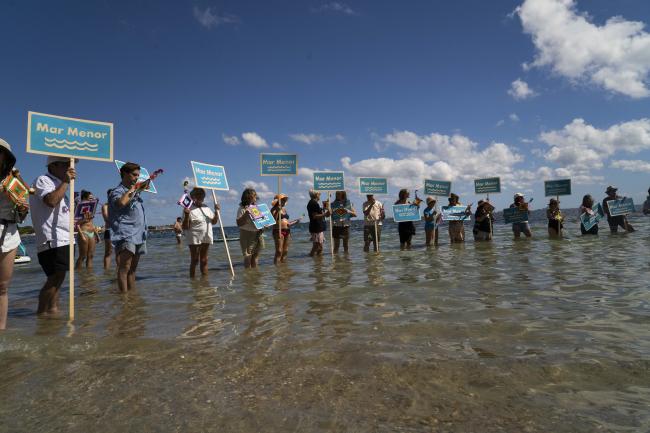
Do you perceive yourself as European?
"Yes, although it doesn't play a big role for me. I experience it especially when I'm outside Europe, then I feel European. I come from this part of the world where colonization emerged, so then I feel part of the forces that colonization and the slave trade have created. I find these important historical events hard to escape from as a European, they extend into the present. Europe is the home of many big companies, it is also Fortress Europe. I can travel, but it is difficult for others to enter. Admittedly, my feeling about that European identity is a distinctly Western European feeling; it’s not the same for everyone."
What do you think is at stake during the next elections?
"At the Embassy, the elections do not necessarily play a role for us directly. We want to free ourselves from a certain sense of urgency, so we create spaces to conduct research and go down dwaalwegen (exploring new paths) which you only have time for if you free yourself from urgency thinking. We are aware of the urgency of the climate catastrophe, but what we have in mind is a fairly major cultural transformation. These are new questions we ask ourselves about our world, our democracy, and our legal system. It cannot be reduced to the question of which party you are going to vote for.
At the same time, the EU is very much part of what we are doing. Last September, we started our confluence in Brussels. We initially wanted to bring it all together and organize an event for Members of the European Parliament to draw attention to what we do. But at some point, we realized we wanted to practice a new form of ecological politics. Sure, I understand that people come together in Brussels to do politics, but our movement is a mental, spiritual and emotional movement. It goes in the opposite direction, from Brussels to ecological places. So, we travelled past Brussels, and symbolically took it with us.
In the future, we may eventually return. How do all these waters, but ultimately also other ecosystems, get a voice in politics in a broad sense? Not only in Parliament, but everywhere in negotiations, legislative processes etcetera. The most exciting question is what would happen if we did that? What dreams and what vision do we have, if we as humans feel involved not only with our human society but with everything that lives?"
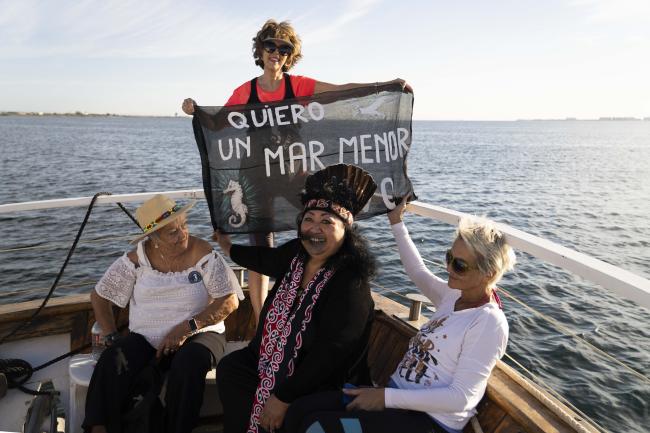
What is your message to the European people, and to policymakers, MEPs, or other decision-makers about the importance of supporting and prioritizing European cultural collaboration?
"Speak out for the importance of those committed to a different relationship between people and the ecosystem than the one we have now."
What is a European cultural project or place that you think people must know about?
"In Montenegro, there will be a Water Camp at the beginning of May, organized by one of our members, the Komarnica River. Several hydroelectric dams are being planned there, in one of Europe's last truly wild river regions. The camp will organise a protest at the beginning of May, which we as the embassy will attend. To me, everything comes together here: arts, activism, science, power and politics. We want to emphasize that the struggle is not only being waged and being fought in Montenegro, we want to show the whole of Europe the importance of preserving these rivers for the ecosystems and the communities living there."
Europe & DutchCulture
DutchCulture is connected to Europe in a number of ways. We work closely with the Dutch embassies in 24 focal countries worldwide, including nine in Europe. We establish collaborations with these countries in the field of culture and cultural heritage. With our Europe + Heritage programme, Dutch heritage professionals are stimulated and enabled to set up European heritage knowledge exchanges. We offer advice on the Creative Europe programmes and seek to shape the future of cultural relations through the EUNIC network.
During the European Parliament Elections held from 6 to 9 June this year, citizens from 27 EU countries will have the opportunity to cast their votes. It is a crucial moment for the future of Europe and our planet, and will also shape European cultural policies in the years to come. Fundamental values such as democracy, human rights and freedom of speech are at stake.
It prompts us to reflect on the role of culture in fostering a united Europe. In this series of interviews, we are eager to learn from artists and a wide range of cultural professionals about what Europe and the EU mean to them personally and for their practice. Additionally, we explore how cultural exchange can contribute to a stronger shared European (cultural) space.
